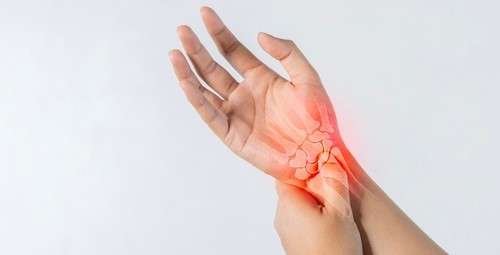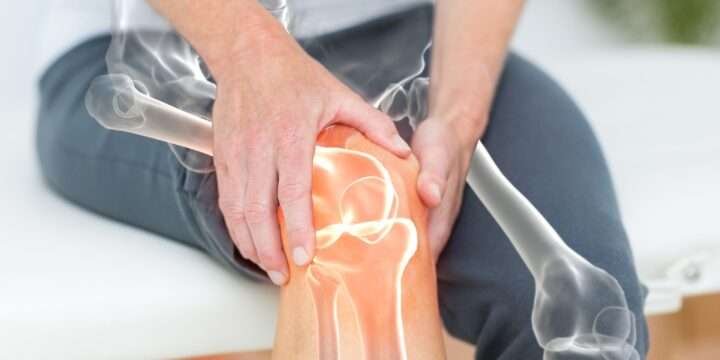
Bone pain can be a warning sign — sometimes mild, sometimes serious. Recognizing the signs of Bone Pain early helps you get the right diagnosis and treatment faster. Below are ten clear signs to watch for, what they may mean, and when to seek medical or Ayurvedic help.
Signs of Bone Pain — why it matters
Bones don’t usually ache the way muscles do. Deep, persistent, or worsening pain can point to conditions such as fractures, osteoporosis, infections, arthritis, or (rarely) tumors. If you notice the signs of Bone Pain listed below, act early — many causes are treatable when identified in time.
Top 10 signs of Bone Pain you should not ignore
1. Persistent deep ache that won’t go away
A dull, deep ache that continues for days or weeks — especially at rest or at night — is a common sign of Bone Pain and needs evaluation. Persistent bone pain is different from short-lived muscle soreness.
2. Pain that gets worse at night
Bone pain that intensifies at night or disturbs sleep can be a red flag for serious causes (including infections or bone lesions). Don’t dismiss worsening nighttime pain.
3. Localised swelling, redness or tenderness
Visible swelling, warmth, or a tender lump over a bone may indicate infection (osteomyelitis), inflammation, or a growing lesion — all important signs of Bone Pain that require prompt assessment.
4. Pain after a minor fall or bump
If a small injury causes unusually intense pain, it could mean weakened bones (osteoporosis) or an occult fracture. This is a key sign of Bone Pain that should not be ignored.
5. Difficulty using the limb or limited movement
If pain reduces your ability to walk, lift, or bend, it may come from the bone or nearby joint. Reduced function with pain is a practical sign that needs evaluation.
6. Fever, chills or general unwell feeling with bone pain
When bone pain comes with fever, sweats, or fatigue, infection (osteomyelitis) or systemic illness must be considered. These combined symptoms are urgent signs of Bone Pain needing medical attention.
7. Recurrent or increasing pain in multiple bones
Widespread or migrating bone pain can point to metabolic, inflammatory, or systemic diseases and is an important sign to investigate.
8. Unexplained loss of height, stooped posture, or sudden back pain
These are classic signs linked to vertebral fractures from osteoporosis — a “silent” disease until a break occurs. If you notice height loss or sudden spinal pain, act quickly.
9. Recurrent fractures or bone fragility
Breaking bones from minor knocks suggests low bone density. Recurrent fractures are a major sign of Bone Pain and bone health decline.
10. A new lump, visible deformity, or numbness/tingling near the painful area
A growing lump, change in bone shape, or neurological symptoms (numbness, weakness) near the pain can indicate serious conditions — including tumors or nerve compression — and need urgent evaluation.

What you can do right now (safe self-care)
- Rest and avoid activities that sharply increase pain.
- Apply ice for new injuries (first 48–72 hours), then gentle warmth for chronic stiffness.
- Stay hydrated and get sunlight for vitamin D (supports bone health).
- Use gentle movement and physiotherapy exercises as tolerated to prevent stiffness.
- For topical relief, medicated Ayurvedic liniments (such as Vedic Upchar Paingesic Oil) can help ease stiffness and improve circulation; use as directed.
Ayurvedic approach to bone pain
Ayurveda focuses on calming Vata (movement) imbalance and nourishing Asthi (bone tissue). Common supportive measures include strengthening herbs (Hadjod/Cissus, Ashwagandha), nourishing diet rich in calcium and vitamin D, medicated oil massage (Abhyanga), and lifestyle adjustments tailored to your constitution. Always start herbs and internal treatments under an Ayurvedic doctor’s guidance.
When to seek urgent medical care
Seek immediate care if you have: severe sudden pain after injury, fever with bone pain, red/swollen painful areas, sudden neurological symptoms (numbness/weakness), or unexplained weight loss with persistent bone pain. These are warning signs that need fast investigation (imaging, blood tests).
How Vedic Upchar can help
If you notice any of these signs of Bone Pain, getting a proper diagnosis is the first step. Vedic Upchar offers personalised Ayurvedic consultations to assess causes, combine safe topical care (like Paingesic Oil), recommend herbs, and create a step-by-step plan for recovery and bone health.
👉 Book an Ayurvedic consultation: https://vedicupchar.com/doctor-consultation/
Final note
Signs of Bone Pain are signals — some minor, some serious. Early recognition and timely action protect mobility and quality of life. If you have persistent or worrying symptoms from the list above, please consult a healthcare provider or book an Ayurvedic evaluation with Vedic Upchar for a tailored plan.